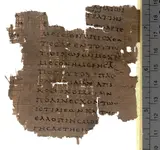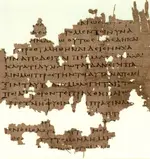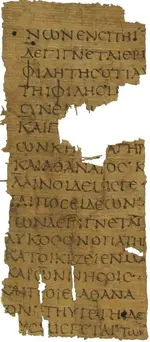Hello All
Hope you have all had a happy New year.
If one was interested enough to continue the search for Atlantis?
I hope one day some one will fully decipher the Minoan language? It is interesting that we call them Minoans because we do not know their real name? There is little Knowledge of the spoken and written language of the Minoans. Only a small number of records found. Around about 3000 clay tablets have been found with the various Cretan scripts. Clay tablets seem to have been used from around 3000 BC or perhaps earlier?
Until we get a better understanding of their language, it is a very hard road to follow.
But perhaps through Hellenicus we may indeed be lead to some interesting things?
Hellenicus authored works of chronology, geography, and history, particularly concerning Attica, in which he made a distinction between what he saw as Greek mythology from history.
It has been alleged that He also wrote a work mostly lost to history entitled Atlantis (or Atlantis), about the daughter of the Titan Atlas. Some academics think that some of his text may have come from an epic poem called Atlantis? It has been suggested that part of this document which may be the Oxyrhynchus Papyri 11, 1359.
Oxyrhynchus was a city in Upper Egypt. It is also an archaeological site, considered one of the most important ever discovered. For the past 100 years or so, the area around Oxyrhynchus has been continually excavated, yielding an enormous collection of papyrus texts dating from the time of the Ptolemaic and Roman periods of Egyptian history. The Ptolemaic Kingdom was a powerful Hellenistic state, extending from southern Syria in the east, to Cyrene to the west, and south to the frontier with Nubia. Alexandria became the capital city and a center of Greek culture and trade.
For more than 1,000 years, the inhabitants of Oxyrhynchus dumped garbage at a series of sites out in the desert sands beyond the town limits. The area west of the Nile has virtually no rain, so the garbage dumps of Oxyrhynchus were gradually covered with sand and were forgotten for another 1,000 years.
Egypt under the Greeks and Romans was governed bureaucratically and the material at the Oxyrhynchus dumps included vast amounts of paper documents. Accounts, tax returns, census material, invoices, receipts, correspondence on administrative, military, religious, economic, and political matters, certificates and licenses. These documents were periodically cleaned out of government offices, and dumped out in the desert. Ordinary citizens also added their own piles of unwanted paper creating a treasure trove of historical documents. A real dumpster dive of epic historical proportions

Papyrus was a expensive paper that was often reused. Some documents might have government accounts on one side, and a student's text of Homer on the other. The Oxyrhynchus Papyri, therefore, contained a complete record of the life of the town, and of the civilizations and empires of which the town was a part of.
It has been estimated that over 70% of all the literary papyri so far discovered come from Oxyrhynchus, both copies of well-known standard works (many in versions significantly closer to the originals than those that had been transmitted in medieval manuscripts) and previously unknown works by the greatest authors of antiquity.
Of the many thousands of papyri documents excavated from Oxyrhynchus, only about 10% were literary. The rest consisted of public and private documents: codes, edicts, registers, official correspondence, census-returns, tax-assessments, petitions, court-records, sales, leases, wills, bills, accounts, inventories, horoscopes, and private letters.
There are about 100,000 papyrus fragments stored at the Sackler Library, Oxford United Kingdom. Perhaps in this jigsaw of scraps of fragments and the fragments yet to be found, may one day yield more information about Atlantis?
Crow

















